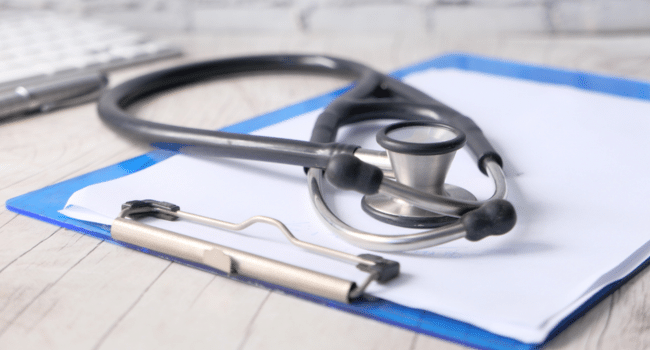Table of Contents
The life of a student is a demanding balancing act. Juggling lectures, assignments, revision, and a social life is challenging enough, but when a sudden illness strikes—especially during a critical exam period or just before a major deadline—the pressure can feel immense. In these moments, it’s crucial to understand that your health comes first and that academic institutions have formal processes in place to support you. The key to accessing this support is often a simple but powerful document: a sick note.
While many associate sick notes with employment, they are official medical documents that hold significant weight in various formal settings, from academic appeals to, in specific circumstances, being used as evidence in sick notes for legal court matters. This guide is designed specifically for students in the UK, providing a clear and comprehensive overview of how to use a sick note to manage your health without jeopardizing your academic progress.
1. What is a Sick Note and Why Do You Need One?
In an academic context, a sick note is an official medical certificate from a qualified healthcare professional that verifies you were genuinely unwell and unfit to attend an exam, submit an assignment, or meet other mandatory course requirements. It is the formal evidence you need to apply for what most UK universities refer to as “mitigating circumstances” or “extenuating circumstances.” Rather than visiting a busy GP, many students now use a fast and confidential service to get a sick note online. Platforms like Sick Note Online provide a legitimate and convenient way to get this crucial documentation from a certified doctor, directly from home.
2. Understanding “Mitigating Circumstances”
This is the official term UK universities use for serious, unforeseen, and unpreventable circumstances that may have a significant negative impact on your academic performance. A genuine illness is one of the most common grounds for a mitigating circumstances claim. Successfully submitting a claim with a valid sick note can grant you options like a deadline extension for an assignment, permission to sit an exam at a later date, or having a poor mark discounted from your final grade.

3. When is a Sick Note Absolutely Necessary?
While a university might allow you to “self-certify” for a very short absence (e.g., missing a single lecture), a formal doctor’s sick note is almost always required for major academic events. You will definitely need one if you are:
- Missing a final exam or a significant test.
- Unable to submit a major piece of coursework or dissertation by the deadline.
- Experiencing an illness that causes you to miss a mandatory placement, lab session, or presentation.
4. Self-Certification vs. a Doctor’s Note: Know the Difference
Many universities have a self-certification policy that allows you to report a short illness (usually lasting up to 5-7 days) yourself without needing a doctor’s note. This is designed for minor ailments that don’t require medical attention. However, this process is for minor absences only. For anything that significantly impacts a major assessment, the university will require official medical evidence in the form of a sick note from a doctor.
5. The Process: How to Submit Your Claim
Simply having a sick note is not enough; you must follow your university’s specific procedure for submitting it. This usually involves completing a “Mitigating Circumstances Form” and uploading the sick note as evidence through your student portal. It is crucial to do this as soon as possible and adhere to the strict deadlines set by your institution, as late applications are often rejected.
6. What Information Must Your Sick Note Contain?
To be considered valid by a UK university, your sick note must contain specific information. This includes your full name, the date of the medical consultation, a clear statement that you are unfit for study, and the exact period of absence you are certified for. Critically, it must also include the name, signature, and professional registration number of the issuing doctor, allowing the university to verify their credentials.
7. Mental Health: A Valid Reason for a Sick Note
It is vital to remember that your mental health is just as important as your physical health. Conditions such as severe anxiety, depression, or extreme stress are valid medical reasons for needing time off from your studies. A certified doctor can issue a sick note for mental health reasons, providing you with the official documentation needed to apply for extensions and support from your university.
8. Confidentiality: Who Will See Your Information?
When you submit a sick note, you may be concerned about your privacy. Rest assured that UK universities have strict confidentiality policies. The details of your illness will only be seen by a small, dedicated team (usually in the student support or administrative office) who handle mitigating circumstances claims. Your professors and lecturers will only be informed that your absence has been officially approved, not the specific nature of your illness.
9. Common Mistakes to Avoid
Navigating the process can be tricky, so be sure to avoid these common mistakes. Do not wait until after your deadline or exam to get a sick note; you must seek medical advice during the period you are unwell. Do not assume that getting a sick note automatically grants you an extension; you must still complete and submit the official university form. Finally, do not submit a fake or altered note, as this is considered serious academic misconduct with severe consequences.
10. Planning Ahead: Know Your University’s Policy Now
The best time to understand your university’s policy on sick notes and mitigating circumstances is at the start of the academic year, before you ever get ill. Take ten minutes to find the relevant section on your university’s website and save the link. Knowing the process in advance will save you a huge amount of stress and anxiety if you do fall ill during a critical period.
Conclusion: Prioritising Your Health
Being a student is a high-pressure experience, but your well-being should always be the priority. A sick note is a powerful tool that empowers you to take the time you need to recover without letting an unexpected illness derail your academic career. By understanding the process, respecting the deadlines, and providing the correct documentation, you can navigate these challenges with confidence and ensure you are given a fair opportunity to succeed.
